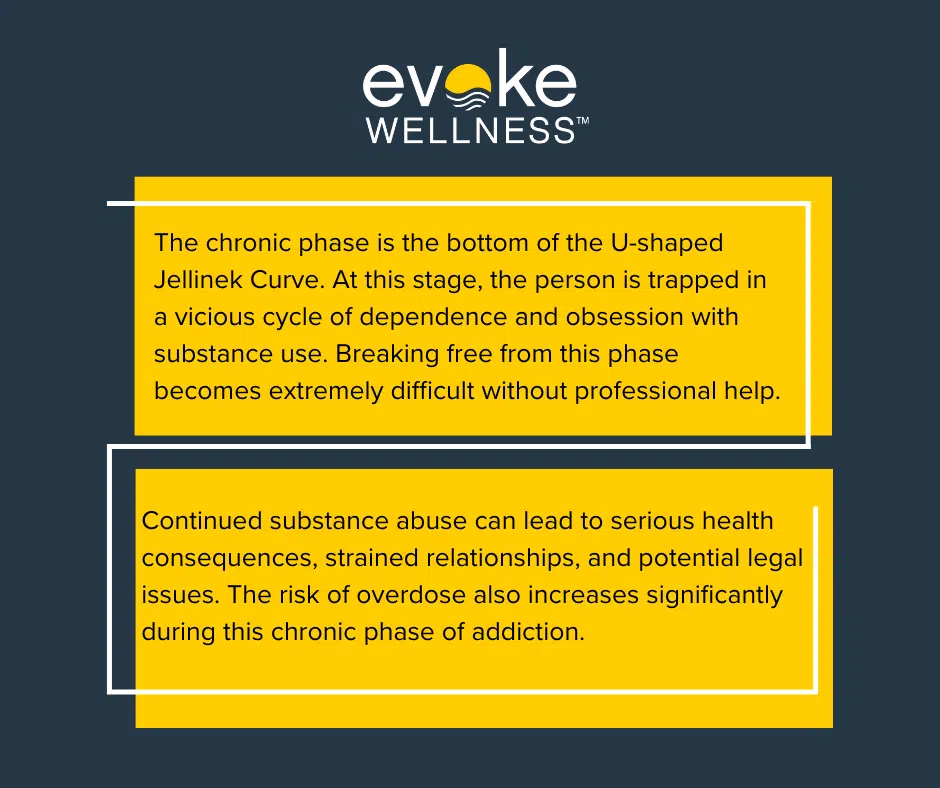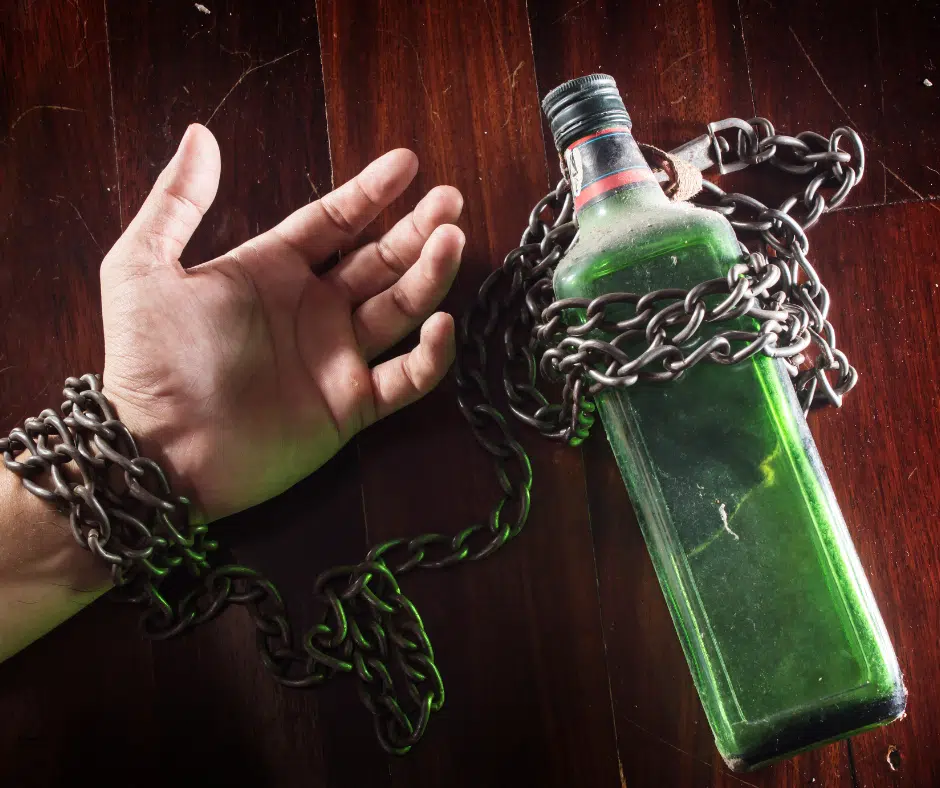Have you ever wondered about the progression of alcohol addiction? Understanding the different phases can be crucial for recognizing problematic drinking patterns in yourself or a loved one. As you navigate this complex issue, it’s important to know that alcohol addiction doesn’t happen overnight. Instead, it develops through distinct stages, each with its own set of challenges and warning signs. Recent studies show that approximately 14.5 million Americans aged 12 and older struggle with alcohol use disorder. Whether you’re seeking information on alcohol detox, exploring addiction treatment programs, or simply educating yourself, this article will guide you through the various phases of alcohol addiction and highlight available resources for recovery.
Together, let’s embrace the journey to recovery and the promise of a new beginning. Call us at (833) 819-6066 today or reach out online.
What Are the 4 Stages of Alcoholism?
Early Stage
In this initial phase, alcohol consumption becomes a routine part of your life. You may start drinking more frequently or in larger quantities, often using it as a coping mechanism for stress or emotional issues. Despite experiencing occasional blackouts or hangovers, you still believe you have control over your drinking habits.
Middle Stage
As alcohol intake escalates, you’ll likely experience increased tolerance and withdrawal symptoms when not drinking. Your behavior may become erratic, negatively impacting relationships, work, and overall health. Signs of misuse like neglecting responsibilities, hiding your drinking, or making excuses become more apparent.
Late Stage
In this critical phase, alcohol consumption is now compulsive and uncontrollable. Physical and psychological dependence have set in, making it extremely difficult to function without alcohol. Health issues like liver damage, neurological impairment, and mental disorders may emerge due to long-term benzodiazepine abuse.
End Stage
The final and most severe stage is characterized by a complete loss of control over drinking. Alcohol consumption becomes the sole focus, and you may experience life-threatening withdrawal symptoms if intake is stopped abruptly. Organ failure, psychosis, and other severe medical complications can arise, necessitating immediate professional intervention and treatment.
What are the stages of change in alcoholism?
The Precontemplation Stage
In this initial phase, individuals struggling with alcoholism are not yet considering change. They may be in denial or unaware of the severity of their drinking problem. According to a study by the National Institute on Alcohol Abuse and Alcoholism, approximately 14.5 million adults aged 18 and older had Alcohol Use Disorder (AUD) in 2019. Many in this precontemplation stage are resistant to acknowledging their addiction and the need for change.
The Contemplation Stage
During this stage, individuals become aware of the negative consequences of their drinking behavior and start considering the possibility of change. They may weigh the pros and cons of seeking treatment or attempting to quit on their own. As reported by the Substance Abuse and Mental Health Services Administration (SAMHSA), only 7.1% of adults with AUD received treatment in 2020. This low percentage highlights the difficulty of transitioning from contemplation to action.
The Preparation Stage
In this stage, individuals have made a commitment to change and begin taking steps toward recovery. They may research treatment options, seek support from loved ones, or make initial attempts to reduce or stop drinking. According to Evoke Wellness at Miramar, their comprehensive alcohol addiction treatment programs help individuals develop healthy coping strategies and achieve long-term recovery.
The Action Stage
This stage involves actively engaging in the recovery process, such as attending therapy sessions, participating in support groups, or entering an alcohol detox and addiction treatment program. Individuals in this stage are fully committed to overcoming their alcohol addiction and making significant lifestyle changes.
The Maintenance Stage
The final stage focuses on sustaining the progress made during recovery and preventing relapse. Individuals in this stage continue to attend support groups, practice coping strategies, and make lifestyle adjustments to maintain sobriety. Ongoing support and vigilance are crucial to avoid slipping back into old patterns of alcohol abuse.
It’s important to note that the stages of change are not always linear, and individuals may cycle through them multiple times before achieving lasting recovery. Evoke Wellness at Miramar offers evidence-based therapies and support to help individuals navigate these stages and achieve long-term sobriety.
What are the 4 phases of the addiction cycle described?
Crucial Phase
- The crucial phase marks the beginning stages of addiction. It often starts with casual or social use, such as social drinking or taking prescription drugs as directed. However, this can quickly progress to occasional substance use for relief from stress, anxiety, or pain.
- As dependence grows, individuals may experience guilt, loss of willpower, and start avoiding social situations. This downward spiral represents the left side of the Jellinek Curve, a visual model depicting the progression of addiction.

Rehabilitation Phase
- The rehabilitation phase, represented by the right upward side of the curve, is the recovery process. With proper treatment and support, individuals can begin detoxing, regaining clarity of mind, and rebuilding their lives.
- During this phase, new connections are formed, self-esteem is rebuilt, and a strong support system is established. Comprehensive addiction treatment programs offer various therapies and resources to help individuals navigate this challenging but rewarding journey towards sobriety.
Relapse & Maintenance
- Relapse is a common part of the recovery process, and the Jellinek Curve can help track progress. With ongoing support and commitment to maintaining sobriety, individuals can learn to manage cravings and prevent relapse.
- Aftercare and alumni programs provide continued guidance and resources to help individuals sustain their recovery efforts and maintain a healthy, substance-free lifestyle over the long term.
By understanding the four phases of the addiction cycle, individuals can better recognize the warning signs and seek appropriate treatment before reaching the chronic phase. With the right support and resources, lasting recovery from addiction is achievable.
What are the levels of alcohol addiction?
Early-Stage Addiction
- Occasional binge drinking or regular heavy alcohol use
- Feeling a strong need or craving to drink
- Temporary blackouts or memory lapses after heavy drinking sessions
Moderate Addiction
- Drinking becomes a regular habit to cope with stress or other issues
- Prioritizing drinking over other obligations like work or family
- Experiencing withdrawal symptoms like nausea or anxiety when not drinking
- Needing to drink more to achieve the desired effects
Severe or End-Stage Addiction
- Drinking has become the main priority in life
- Experiencing severe physical and psychological withdrawal symptoms
- Suffering major health, social, financial, or legal consequences due to drinking
- Inability to control alcohol consumption or remain sober
- Often requires medically-supervised detox and intensive addiction treatment
According to recent studies, over 20% of college students meet the criteria for alcohol use disorder. Recognizing the level of addiction is crucial for determining the appropriate alcohol addiction treatment program.
What are the stages of alcohol recovery
Embarking on the journey of alcohol recovery is a profound and multifaceted process. It involves navigating various stages, each presenting its unique challenges and milestones.
The Detox Phase
The first crucial step is detoxification, which helps the body safely readjust after ceasing alcohol consumption. As highlighted in this blog post, alcohol detox provides numerous benefits, including improved physical health, enhanced mental clarity, and reduced withdrawal symptoms under medical supervision.
Early Recovery
Once detox is complete, individuals enter the early recovery phase. During this stage, comprehensive addiction treatment programs, combining evidence-based therapies, are essential. These programs address the physical, psychological, and social aspects of alcohol addiction through medication-assisted treatment, counseling, dual diagnosis support, and holistic approaches.
Ongoing Support and Aftercare
Maintaining long-term sobriety requires ongoing support and aftercare. This stage may involve sober living homes, alumni programs, and support groups. These resources provide a strong foundation for preventing relapse and fostering a fulfilling, alcohol-free life.
The Jellinek Curve
The Jellinek Curve offers a visual representation of the stages many individuals go through during addiction and recovery. It illustrates the downward spiral of addiction, followed by the upward rehabilitation phase, where new connections, self-esteem, and courage emerge, ultimately leading to sustained sobriety with the right treatment and support.
FAQs about Different Phases of Alcohol Addiction
What Are the Stages of Alcohol Addiction?
According to research from Evoke Wellness, there are four main stages that outline the progression of alcohol addiction:
- Experimentation – Using alcohol voluntarily with no negative consequences experienced.
- Regular Use – Consuming alcohol regularly, often to cope with mental health issues or physical pain.
- Risky Use/Abuse – Continuing use despite negative impacts, with increased cravings and difficulty stopping.
- Addiction & Dependency – Complete dependence on alcohol, experiencing severe withdrawal symptoms when not drinking.
Can Addiction Be Stopped in Early Stages?
In the early experimentation and regular use stages, some individuals may be able to stop drinking on their own. However, as stated by Evoke Wellness, professional treatment is recommended, as addiction is a chronic, progressive brain disease. Without intervention, the condition will likely worsen over time.
What Treatment is Available?
Evoke Wellness at Miramar offers comprehensive addiction treatment programs to help individuals achieve lasting recovery from alcohol addiction. Their residential program provides medical detox, followed by evidence-based therapies like CBT, DBT, family therapy and more.
Aftercare support like sober living communities and 12-step programs are also an integral part of treatment to prevent relapse.
Is Late-Onset Alcoholism Common?
Yes, late-onset alcoholism refers to developing an alcohol use disorder after age 63. Potential causes include loneliness, life stresses, genetics and self-medicating physical/emotional pain. Older adults face unique challenges but can achieve sobriety with comprehensive, age-specific treatment.
Conclusion
In conclusion, understanding the phases of alcohol addiction is crucial for early intervention and effective treatment. By recognizing the signs at each stage, you can take proactive steps to address the issue before it escalates. Remember that professional help is available and essential for overcoming alcohol addiction. Alcohol detox and comprehensive addiction treatment programs offer the support and tools needed for lasting recovery. Don’t hesitate to reach out to addiction specialists who can guide you through the process and help you regain control of your life. With the right resources and determination, you can break free from the cycle of alcohol addiction and embark on a healthier, more fulfilling future.
Begin Your Journey with Evoke Wellness at Miramar
If you or a loved one is considering treatment, Evoke Wellness at Miramar invites you to contact us. Our compassionate team is ready to answer your questions, discuss your needs, and help you take the first steps toward recovery. In Miramar, you’ll find more than just a treatment program – you’ll discover a community dedicated to your wellness and success. Together, let’s embrace the journey to recovery and the promise of a new beginning. Call us at (833) 819-6066 today or reach out online.


